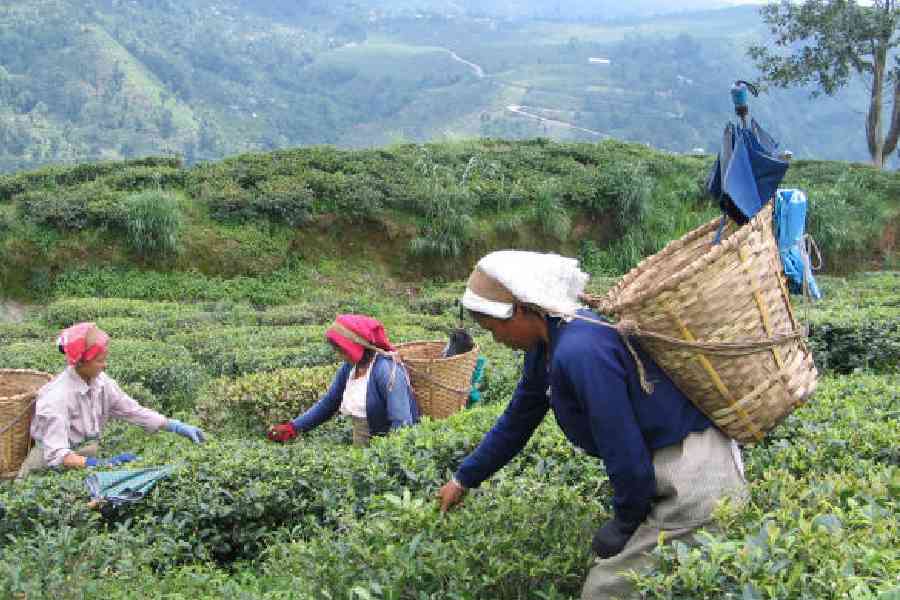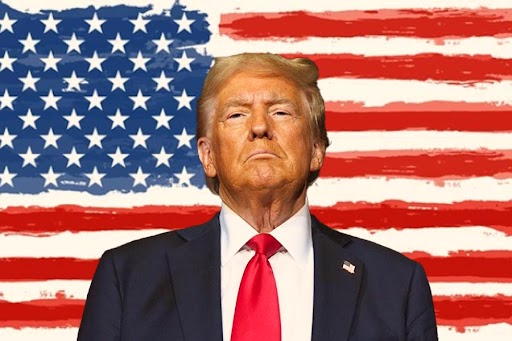Chief minister Mamata Banerjee has promised to implement a system to check the sale of “spurious” tea as Darjeeling Tea.
The announcement brought some relief to producers of Darjeeling Tea, who, however, stressed that the Union government must also step in to curb the menace of Nepal Tea being sold off as Darjeeling Tea.
“When I had gone to the US and the UK many years ago, I saw in the transit area, the waiting lounge, that the tea packets kept there were Darjeeling Tea. I felt happy about it,” Mamata said at a public programme in Chowrasta, Darjeeling, on Wednesday.
The chief minister then spoke about the problems that Darjeeling Tea was facing.
“Now it (Darjeeling Tea) is facing some problems. Spurious tea, which is not from Darjeeling, is being sent. We will put in place a system to stop such practices and ensure the Darjeeling brand is not defamed,” said Mamata.
The Darjeeling Tea planters have alleged that Nepal tea is being sold off as Darjeeling Tea by many unscrupulous dealers. “If the state government acts against such unscrupulous activities, it will act as a deterrent,” said a planter.
Sources said there were also instances of Nepal tea being smuggled into India through the porous international border in Bengal.
The Darjeeling hills have 87 plantations which produce Darjeeling Tea. After the Geographic Indicator (GI) status was accorded to Darjeeling Tea in 2003, only the 87 gardens in the hills could produce and sell Darjeeling Tea.
In a recent letter to the directorate general of foreign trade, Shanta Chhetri, a former Rajya Sabha member, said around 16 million kgs of Nepal tea were imported into India annually and around five to six million kgs of tea were orthodox tea.
The orthodox tea is similar to Darjeeling’s produce. The Darjeeling Tea industry produces around 6.5 million kgs of made tea annually, which means that a quantity that is equal to Darjeeling’s produce is brought from Nepal to India.
Chhetri sought an immediate review of the policy on the import of Nepal tea. “Nepal government imposes an import duty of 40 per cent on Indian tea but our government does not impose any import duty on Nepal tea,” Chhetri wrote.
The planters maintain that Nepal tea is also cheap because the cost of production is said to be 40 per cent less than Darjeeling Tea.
“Nepal tea is also of dubious quality and can pose serious health hazards,” said a planter.
Sandeep Mukherjee, the principal advisor to the Darjeeling Tea Association (DTA), said the industry had written to the Union minister of commerce and industry demanding compulsory testing of the tea imported from Nepal, as mandated by the Food Safety and Standards Authority of India (FSSAI).
Expressing surprise over the “unfair treatment” of Darjeeling and Nepal tea, Mukherjee said: “While Darjeeling Tea is tested for safety standards, Nepal tea does not undergo tests as mandated by FSSAI. This is an unfair treatment that is also dangerous from the consumers’ perspective.”
FSSAI, which is under the Union ministry of health and family welfare, in its order dated April 23 made accurate testing mandatory for all imported teas.
“The entry points along the India-Nepal border lack proper testing labs. The
samples have to be taken to Calcutta and trucks cannot be held at the border for around seven days,” said an industry source.
Following the 104-day general strike in 2017, Indian buyers switched over to Nepal tea as production of Darjeeling Tea was low. “The buyers are still sticking to the Nepal tea as it is cheap,” said an industry source.











